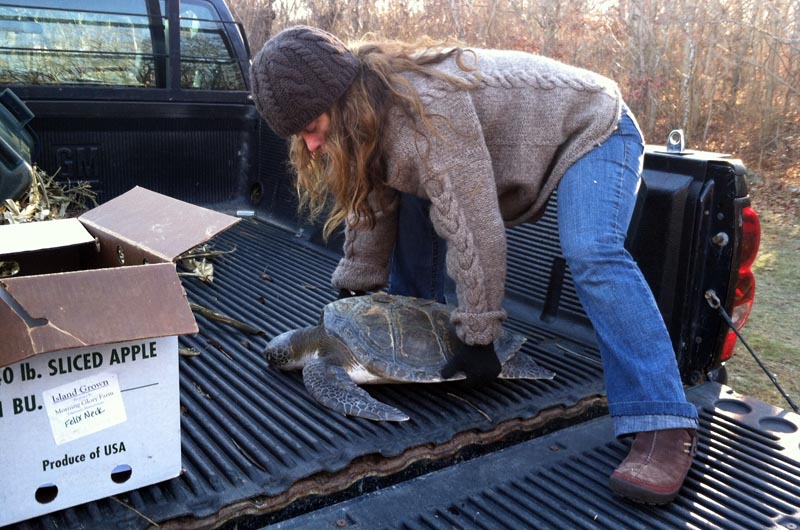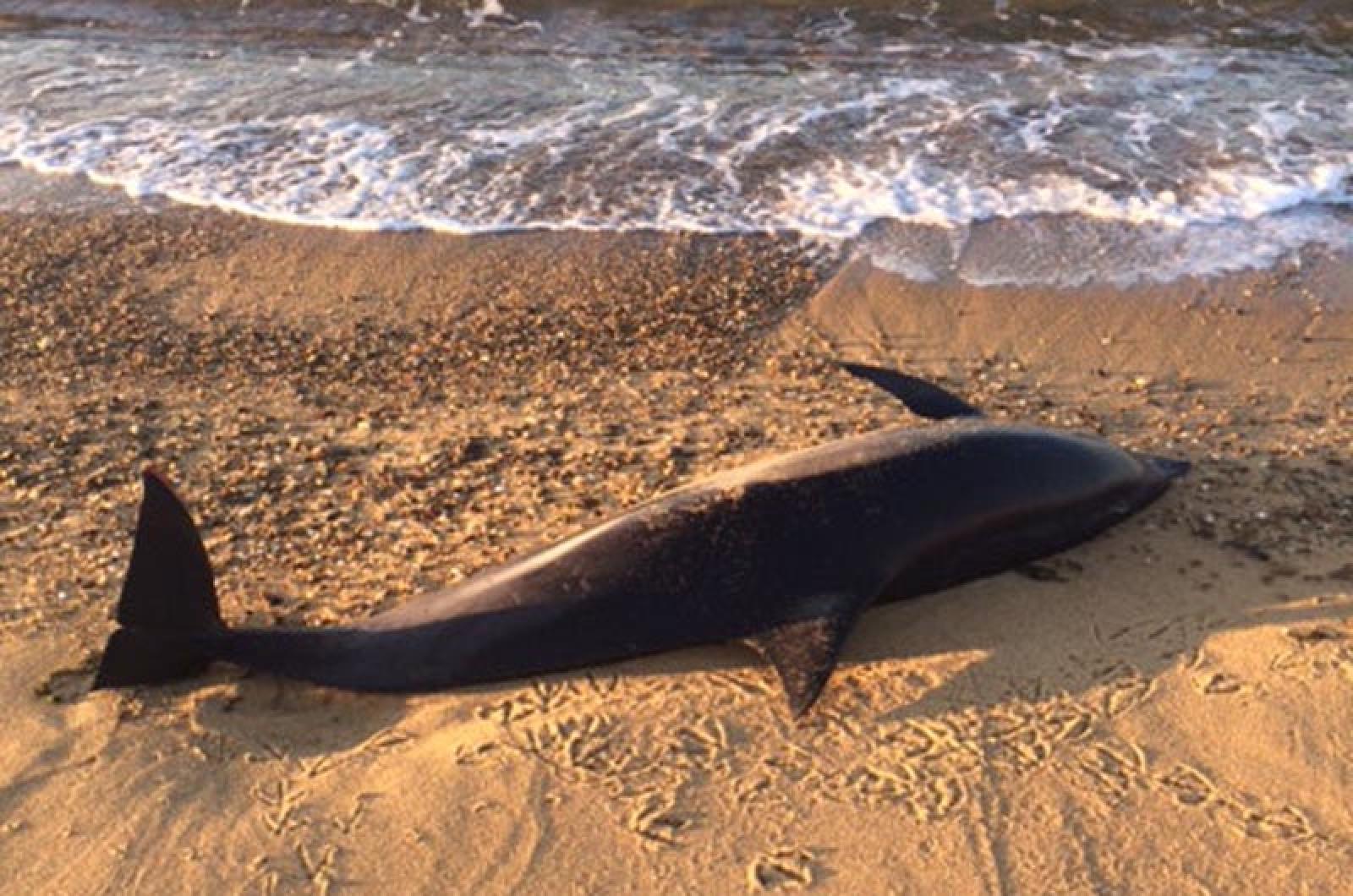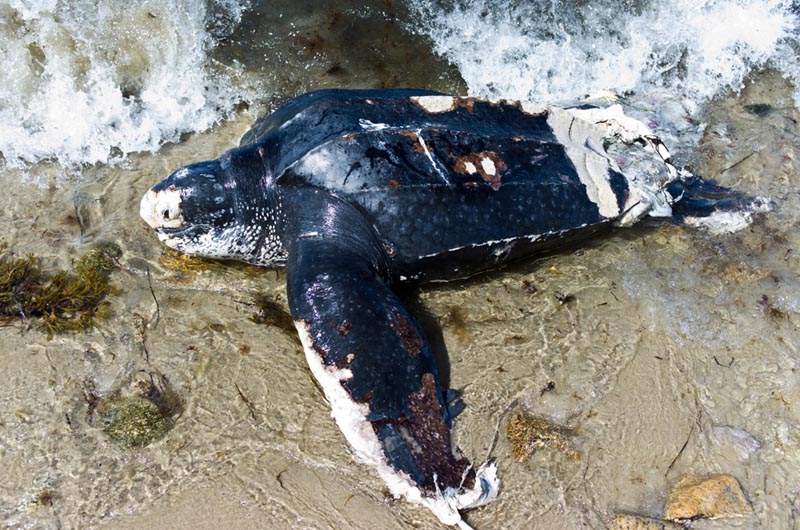The New England Aquarium, long the agency in charge of marine animal rescue efforts throughout the state, is now limiting its involvement with mammal rescue on the Vineyard. Citing strategic planning and a rebound in the seal population, the aquarium is no longer the lead response agency for seal, dolphin and whale strandings on Martha’s Vineyard, Nantucket and the north shore of Massachusetts. The aquarium will now focus on sea turtle strandings and research of existing and emerging diseases in marine animals
The National Oceanic and Atmospheric Administration (NOAA), the federal authority responsible for monitoring marine populations, is now looking for volunteers on the Island to continue the program.
New England Aquarium public relations director Tony LaCasse said the aquarium first notified NOAA about their plans to shift focus about three years ago, and said the change in focus was a strategic decision made over the last several years.
The change will “put more of our resources into sea turtles, mostly due to the health and vigor of the seal populations,” Mr. LaCasse told the Gazette. “All the seal species here in New England are not threatened or endangered while four species of sea turtles we regularly deal with are endangered and threatened.”
The Marine Mammal Health and Stranding Response Program was formalized in 1992 under the Marine Protection Act after a large number of strandings and marine mammal deaths. Those who work with marine mammals do so under authorization by NOAA specifying which animals they can work with, their level of interaction, and the areas where they can work. Volunteers undergo training and also complete continuing education and research. When called into action, they collect information, assess situations, and work with other organizations to perform research or rehabilitation. The network responds to reports of seals, dolphins, whales and turtles that have washed ashore, dead or alive.
The New England Aquarium was at the forefront of the effort, beginning their marine animal rescue team in 1968 and setting up a network of volunteers and local responders throughout New England.
The aquarium’s marine mammal response operates with funding from the aquarium’s bottom line and a small number of grants, Mr. LaCasse said, and the aquarium spends in the high hundreds of thousands of dollars every year on marine mammal rescue. According to the aquarium, the direct cost — including medications, diagnostics and food, but not including staff time and transportation — of rehabilitating a porpoise is $16,000. The cost is $1,400 for a seal and $1,000 for a sea turtle.
Animals wash ashore individually or in groups for a number of reasons, including old age, disease, disorientation, weather, vessel strikes, and food search. Sea turtles get stranded most frequently in November and December, while dolphin stranding season begins around January.
Common and white-sided dolphins are often stranded when caught too close to shore at low tide, Mr. LaCasse said. Dolphins are often successfully relocated, he said, with satellite tags on 10 rescued dolphins showing all survived. “Every single day I’ve ever worked that had a marine mammal response has been an exciting day and at the end of the day you go to bed feeling like you made a difference,” he said. “It was worthwhile even if it didn’t have a good outcome.”
“A lot of monitoring and education...we felt could be done by other groups,” Mr. LaCasse said, though the aquarium will continue to do research into the animal deaths, taking fresh carcasses for necropsies and further research.
Research into new and existing diseases is important, he said, citing an recent identified outbreak of influenza among harbor seal yearlings on the New Hampshire coast. The disease was previously seen in dogs and horses, he said, and when influenza jumps a species, it’s “a huge area of concern for the [Center of Disease Control].” With research, he said, “we’ll be able to monitor the public heath profile of various marine mammal species.”
Sea turtles are an increasing area of concern, he said, with sea turtle strandings on the rise over the last decade. Because they are cold-blooded, sea turtles are also easier to transport as they can withstand cooler body temperatures for longer periods of time.
He said the aquarium will continue to monitor and educate the public about marine mammals, and respond to locations between Cape Cod and Salem. “We can get to all those locations in under an hour,” he said. “In terms of first responding that’s reasonable for us to do.”
“Giving up our relationship with the rescue teams on the Islands was hard because those folks really do yeoman’s work for us and we’ve worked with them for a long period of time,” he said, passing on his thanks to the animal rescue team on the Island. “They’ve been part of our family for a long time.”

NOAA spokesman Maggie Mooney-Seus said the agency is looking for volunteers, and encourages those who worked with the aquarium and want to continue volunteering to contact NOAA. “Our key focus right now is finding organizations or individuals interested in going through that training,” she said, noting there have already been quite a few calls in the Gloucester area, which was also affected by the change.
She said some training sessions would be available through the internet, so Islanders wouldn’t have to travel. She wasn’t sure if those already trained as volunteers with the aquarium would have to go through another training, adding that will likely be decided on a case-by-case basis.
“We rely very heavily on volunteers and trained responders to help us,” she said. “We’re based in Gloucester and the responders are really our eyes and ears in the field.”
Massachusetts has the highest number of strandings in the northeast, NOAA said, and Cape Cod has a particularly high number of strandings because of the unique geology of the area. “Pilot whales have been stranding on Cape Cod for hundreds of years,” Ms. Mooney-Seus said. “It’s important for us to continue to collect as much information as we can to learn more about what causes them to strand, and if it is something that maybe humans are contributing to, such as environmental changes, we can learn more about that.”
On the Island, the marine mammal response network includes about 30 people, not all active, according to Suzan Bellincampi, director of the Felix Neck Wildlife Sanctuary. Ms. Bellincampi is a volunteer, and Felix Neck often worked with the aquarium on wildlife education and care, she said.
Ms. Bellincampi said she hoped these roles would continue, and said she’s reached out to NOAA.
“We’ll still get a lot of phone calls and guide people to NOAA,” she said. Most of the Felix Neck staff has been trained as volunteers. Felix Neck has worked with the aquarium to hold trainings and education, she said, and is looking at hosting a sea turtle training session for the public.
Ms. Bellincampi said the Vineyard team most frequently receives calls about seals. In this case, part of the job is educating the public about when to stay away. “Seals are mammals,” she added. “It’s normal for them to be hauled up [on the beach].” She advised people to call the marine animal rescue team and let them assess the situation. “If the animal is injured you don’t want to stress it out.”
She cautioned that people should remember that the animals could have diseases, and keep their distance, and keep their pets away. The animals are also wild and can be dangerous, she said, noting that seals have particularly strong jaws.
“The big thing for people to know is just to make a phone call,” she said, leaving contact information and clear directions to the animal’s location.
David Grunden, who has been a volunteer for more than 15 years, said the shift means that those trained under the aquarium are currently unable to intercede with any strandings.
Mr. Grunden recalled that the Island team has responded to a number of animals, from a melon-headed whale to a 50-foot fin whale that came ashore by South Beach. About six seals were sent off-Island for rehabilitation, he said, with four fully recovering. Some stories are sadder, he said, like a neonatal whale that washed ashore alive. The whale was severely dehydrated and had to be put down. Some dolphins wash ashore with parasites or growths, he noted. Necropsies are performed and information sent to a federal register.
“It can be very grotesque...but you know, it’s finding new things, documenting the science of it,” he said. “It all adds to scientific knowledge.”
“It’s always an adventure,” Ms. Bellincampi said. “It’s very interesting, it’s important work.”
“The more people in the know the better you can protect wildlife,” she added. “The best way to get the word out is when people are actively involved in protecting species.”
For turtle strandings, call the Wellfleet Bay Wildlife Sanctuary at 508-349-2645. Those who find stranded mammals — seals, dolphins and whales — can now call the NOAA Fisheries regional stranding hotline, 1-866-755-6622.
To volunteer with the marine mammal stranding network, contact NOAA fisheries stranding coordinator Mendy Garron at 978-282-8478.








Comments
Comment policy »